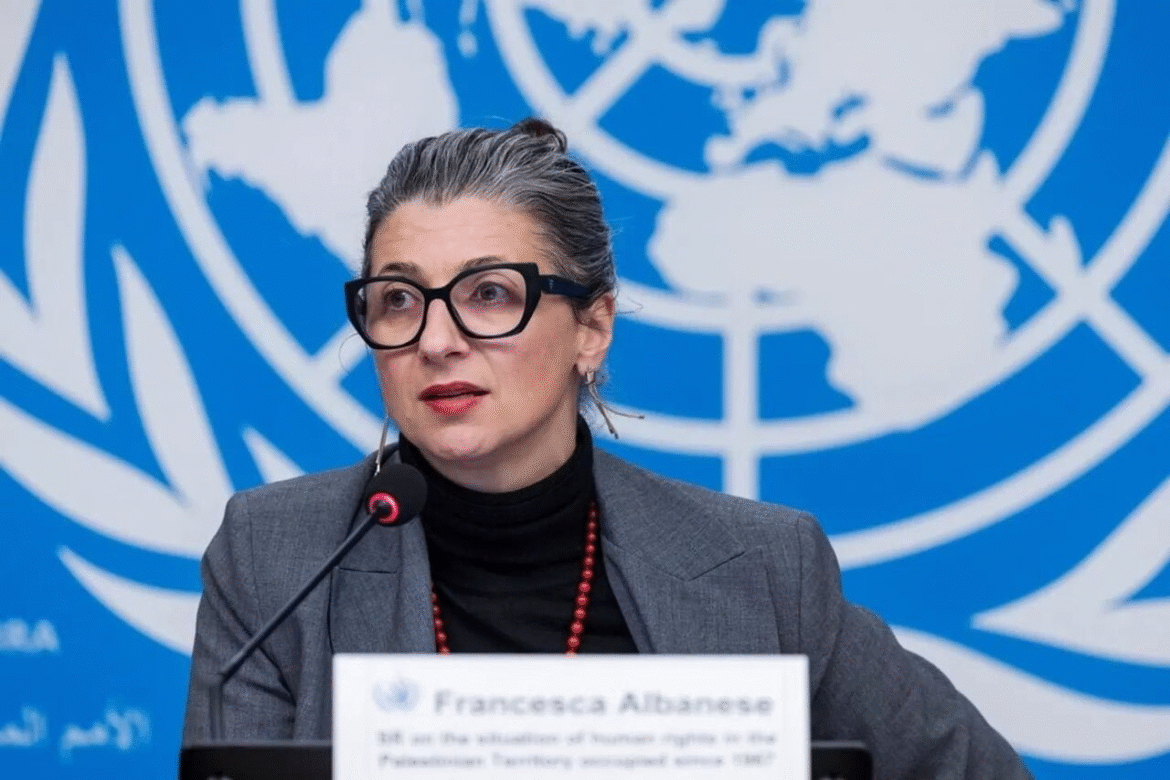Francesca Albanese, UN Special Rapporteur, Targeted After Exposing Israeli War Crimes and Corporate Complicity.
The United States has imposed sanctions on Francesca Albanese, the UN Special Rapporteur on human rights in the occupied Palestinian territories, in a move widely condemned as an attack on international accountability and the independence of the United Nations.
The sanctions, which freeze Albanese’s assets and bar her from entering the US, come after she published a report naming 48 companies—including Google’s parent Alphabet, Amazon, Microsoft, Lockheed Martin, and MIT—for allegedly profiting from or supporting Israel’s occupation of Palestinian territories.
A Dangerous Escalation
US Secretary of State Marco Rubio defended the sanctions, accusing Albanese of “pushing the International Criminal Court (ICC) to investigate US and Israeli officials.” Albanese, an Italian legal scholar based in Geneva, denounced the measures as “mafia-style intimidation” and warned that the US is undermining its obligations as the UN’s host nation under the 1947 Headquarters Agreement.
The sanctions effectively prevent Albanese from attending UN meetings in New York, raising urgent questions about whether the UN can function impartially while headquartered in a country that weaponizes its position to silence critics.
Undermining UN Neutrality
This is not the first time the US has exploited its hosting role to block critics. In 1988, it denied a visa to PLO leader Yasser Arafat, forcing the UN to temporarily move a session to Geneva. In 2019, it barred 18 Russian diplomats, prompting calls to relocate key UN committees.
Former Iranian President Hassan Rouhani once suggested putting the UN headquarters’ location to a vote, arguing for a “more neutral and secure” host country. The latest sanctions have reignited that debate, with critics arguing that the US can no longer claim impartiality while shielding Israel from accountability.
The Cost of Truth-Telling
Albanese, a vocal critic of Israel’s actions in Gaza and the West Bank, has faced intense backlash for her reports, which describe Israel’s policies as potential “genocide” under international law. Her latest investigation detailed corporate and institutional complicity in war crimes, including arms sales, surveillance technology, and academic partnerships.
Veteran journalist Chris Hedges noted that Albanese now faces death threats and smear campaigns from pro-Israel lobbies. “Her crime is telling the truth,” he wrote.
Global Backlash and Calls for Reform
Human rights groups warn that the US sanctions set a dangerous precedent, discouraging other experts from speaking out. Legal scholars argue that the 1947 Headquarters Agreement must be updated to protect UN officials from political retaliation.
While relocating the UN entirely may be logistically challenging, momentum is growing to shift key functions to neutral ground. As the US abandons its pretense of defending human rights, the world faces a stark choice: tolerate the weaponization of international institutions or build a new system where accountability is not negotiable.
Final Thought:
Francesca Albanese’s sanctions are not just about one expert—they symbolize the collapse of a rules-based order under the weight of US hegemony. The question now is whether the UN can survive as a hostage to its host.
Snn


